
HAIs
Latest News

Latest Videos

More News
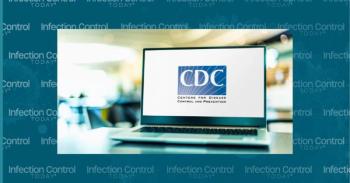
CDC sends pathogen spread proposals for revision, raising concerns about potential harm and emphasizing the need for reevaluation.

Pediatric health system discontinues MRSA contact precautions with sustained infection control success, supporting broader consideration while emphasizing horizontal prevention measures' importance.

Take 5 minutes to catch up on Infection Control Today®’s highlights for the week ending January 14, 2024.
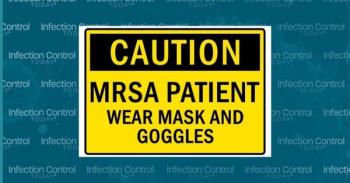
Society for Healthcare Epidemiology of America/Infectious Diseases Society of America/Association for Professionals in Infection Control and Epidemiology answer Diekema, et al, about MRSA prevention strategies.

In a study released today on sepsis patients, limited English proficiency (LEP) didn't show a significant overall mortality link. However, LEP patients in the non-Hispanic White subgroup faced higher mortality rates.

Hospital kitchens play a critical role in infection prevention, focusing on safe food handling from receiving to serving. Proper vetting of food vendors, temperature control, storage, and hygiene are essential to prevent contamination and ensure patient safety.

AI is helping health care professionals during the pandemic by improving accuracy and patient safety in radiology and disease prediction. Despite concerns about job replacement and misuse, AI promises to enhance health care accessibility, affordability, and accuracy.
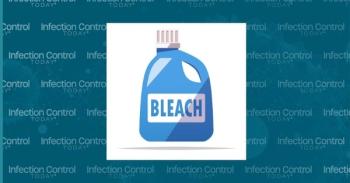
After pushback on social media, Tina Joshi, PhD, spoke with Infection Control Today to clarify and explain her study, her lifelong research, and what she hopes IPs and other IPC personnel can take from them.

Take 5 minutes to catch up on Infection Control Today®’s highlights for the week ending December 10, 2023.

Which of the various low and high-tech measures proposed to mitigate SARS-CoV-2 transmission, from hand hygiene to air cleaners, actually work? A new study gives practical tools for assessment and insights into their effectiveness.

A critical analysis questions the universal application of contact precautions (CP) for MRSA prevention, considering potential harms, environmental sustainability, and evidence-based alternatives.
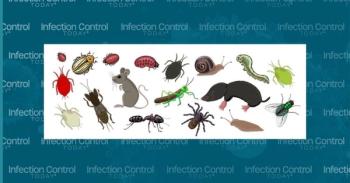
Cold weather can attract pests seeking warmth and shelter in health care facilities. Learn effective strategies, including sanitation and pest management, to protect patients this winter.

Take 5 minutes to catch up on Infection Control Today®’s highlights for the week ending December 3, 2023.
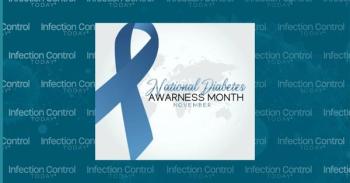
Diabetes Awareness Month in November highlights the heightened susceptibility of diabetes patients to infections. Explore the key reasons behind their increased infection risk and the importance of infection prevention.

A recent study from Chapel Hill, NC, shows some bloodstream infections are reduced by nearly 50% when trained nurse observers assist catheter insertion teams.

Take 5 minutes to catch up on Infection Control Today®’s highlights for the week ending November 25, 2023.
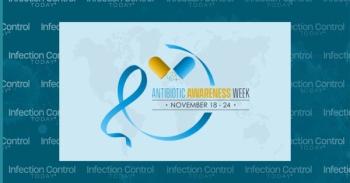
Marking the World Health Organization's World AMR Awareness Week, “Going Blue: Confronting the AMR Challenge,” urges health care providers and the public to educate, follow protocols, and ensure patient safety for antibiotic efficacy.

Prepare for a healthcare "tripledemic" with Influenza, RSV, and COVID-19. Operating rooms face risks, but autonomous UV disinfection systems offer an effective solution to maintain sterility.
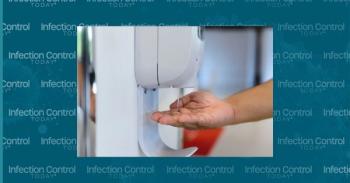
Read about a cluster randomized clinical trial that found that direct gloving without prior hand hygiene significantly improved infection prevention practice adherence among health care personnel.

Take 5 minutes to catch up on Infection Control Today®’s highlights for the week ending November 19, 2023.
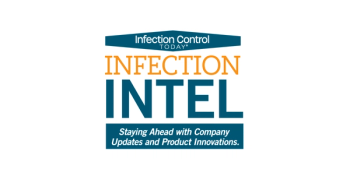
Staying Ahead with Company Updates and Product Innovations. This week's news is from AstraZeneca, DayZero and Oxford Nanopore, Ohmnilab, and NIH.

Read a literature review that examines methods for laundering reusable surgical scrubs. Discover the importance of water temperature, disinfectants, and more in infection control.

At the Rockingham County Rehabilitation Center's Infection Control Fair, innovative and interactive approaches, including demonstrations, quizzes, and engaging activities, significantly promoted infection prevention education, making learning a fun and informative experience.

Recent CDC HICPAC revisions regarding SARS-CoV-2 control face criticism from the World Health Network and others due to alleged breaches in committee structure and erroneous infection control guidance, potentially impacting COVID-19 management and immunocompromised individuals in health care.

Health care-associated infections (HAIs) significantly impact patient outcomes, hospital expenses, and mortality rates in the United States. Hand hygiene stands as the most effective preventive method. While manual observation often produces biased results, Electronic Hand Hygiene Monitoring Systems (EHHCM) offer evolving methods for more accurate adherence assessment.












